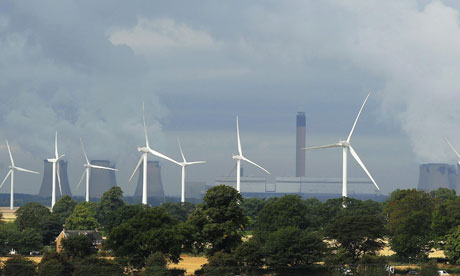The UK’s biggest coal-fired power station has said it will consider investing in gas-powered sites, as it predicted that a dash for gas will be needed in order to head off the threat of power cuts.The chief executive of Drax, Dorothy Thompson, said she would consider the revolutionary move, depending on the detail of the government’s reforms to the electricity market. George Osborne has paved the way for up to 30 new gas-powered stations being built by 2030, which has brought warnings from the government’s own climate change advisor that such a strategy would break its commitment to curb carbon emissions.
Thompson said new gas-fired power stations were likely to be needed to avoid the danger of power cuts. Several companies and the outgoing head of the energy regulator have warned power cuts could come about within three to five years as ageing power plants are taken out of service and new generation capacity is slow to be built. “There are credible scenarios where the UK could have insufficient [generating] capacity,” she said. “It is absolutely necessary to bring on new gas generation. We need to recognise that to ensure we have the available capacity.”
Drax has also benefitted from low coal prices in the past few years, as the shale gas boom in the US has led to a surplus of coal on export markets and driven down prices. However, Thompson said coal was unlikely to fall any further.
Carbon prices were blamed for a big fall in underlying first-half profits at Drax, despite the cost of permits hitting near-record lows.
Drax had to buy about 4m permits, each covering a tonne of carbon dioxide, over the period. This meant that underlying earnings fell by about 22% compared with the same period last year to £120m.
Although the price of carbon permits within the EU’s emissions trading scheme has plunged to near-record lows, as member states over-allocated free allowances to their industries, Drax said it had taken a hit in these results because it was the first time the company had been forced to buy all of its quota. In previous years, heavy emitters were shielded by receiving a large proportion of their permits for free.
Thompson also noted that the government’s carbon floor price – intended to make sure that companies pay a minimum price for the carbon dioxide they emit, however low the EUETS price falls – was taking an added toll, costing the company an additional £14m.
via Dash for gas needed to prevent power cuts, says Drax CEO | Business | The Guardian.
Dash for gas needed to prevent power cuts, says Drax CEO

No comments:
Post a Comment